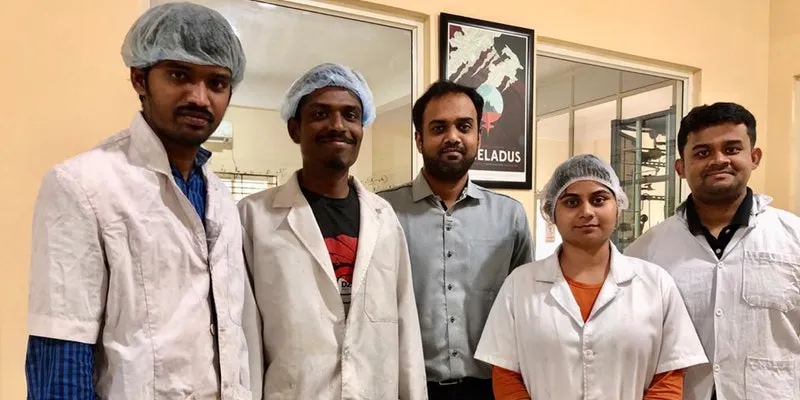Bengaluru-based NoPo’s single-walled carbon nanotubes exceed earlier-established R&D standard
The analysis shows that the NoPo HiPCO commercially available samples can be directly compared to that of the Rice standard, often exceeding the requisite properties when it comes to sample purity and uniformity.
Bengaluru-based startup NoPo Nanotechnologies has announced that its single-walled carbon nanotubes (SWCNTs) are a suitable replacement for the established standard of SWCNTs used for research and development to date.
This independent analysis was done by scientists at the Energy Safety Research Institute (ESRI) at Swansea University in collaboration with researchers at Rice University (USA).
Founded in 2011 by Gadhadar Reddy and Robert Kelley Bradley, NoPo Nanotechnologies manufactures high quality and affordable carbon nanotubes that are being tested by ISRO for their efficacy as a coating on spacecraft.
CNTs are manufactured with HiPCO technology, where carbon monoxide is processed under high pressure and temperature to produce pure carbon nanotubes.
The analysis shows that the NoPo HiPCO commercially available samples can be directly compared to that of the Rice “standard”, often exceeding the requisite properties when it comes to sample purity and uniformity.

Gadhadar Reddy, CEO of NoPo Nanotechnologies India, said making nanotubes has been a dream he has pursued since he was a kid.
His goal has been to show that something of this magnitude can be achieved in India, and the corroboration of NoPo HiPCO single-walled carbon nanotubes (SWCNTs) is testament to this.
Lead author and Indian-origin scientist Dr Varun Shenoy Gangoli stated that “it is in the interest of all researchers to understand how the presently available product compares to historically available Rice CNT materials that have been the subject of a great range of academic studies, and also to those searching for a commercial replacement to continue research and development in this field.”
Anto Godwin, a scientist at NoPo Nanotechnologies, expressed his excitement to be contributing “to a day in the near future where the carbon nanotubes we are making would make a huge difference in people’s lives”.
Nanotubes are also used to make better and cheaper water filters, electric vehicles, in human body implants, and in stealth applications of military aircraft/drones.










